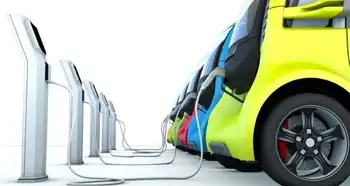GE chief hopes Copenhagen leads to clean energy
"What's most important for the U.S. is that we go from Copenhagen, go into 2010, and have the courage to act on clean energy for the good of the country from the standpoint of creating jobs," Immelt told a conference on renewable energy.
More than 100 national leaders from around the world are meeting in Copenhagen, Denmark, to try to craft an agreement to reduce greenhouse gases and stem climate change.
Immelt told a meeting on renewable energy at Clemson University that within five years, 10 million new green jobs will be created worldwide.
"We would rather see the U.S. be a big player than to see them overseas," he said.
But he said the world will not wait for the United States to take the lead.
"The Chinese will build more nuclear plants than we will this year. The Chinese will install more wind energy than we will this year. Europe is moving ahead on renewable energy," he said. "If we don't get off our butts and move aggressively forward, the world is not going to wait for us."
He said it's crucial that the United States develop a clean energy policy.
"This is about certainty," he said. "It's quite important that we need some kind of certainty, some kind of standards and this is the time we should be acting to create what I would call a clean energy future that creates jobs, creates prosperity and reduces pollution at the same time."
The conference, at Clemson's International Center for Automotive Research, was sponsored by GE, GE Energy, Clemson University and the university's Restoration Institute.
GE employs 3,100 nearby at a gas turbine plant in Greenville.
Last month, Clemson announced it was getting nearly $100 million to study wind energy in North Charleston, work officials say could create thousands of jobs.
"I think it's got great potential, it's a good investment for the long term," Immelt said, noting that Europe plans to install turbines to create 30 new gigawatts of wind energy in the next decade.
"There is a bunch of offshore wind that's going to happen in Europe," he said. "I don't know what's going to happen in the U.S. We really don't know as a country. But I do know there's going to be a lot in Europe."
Immelt said for the U.S. to become a global leader in green technology requires three things: a renewed commitment to technology, public policy that encourages investment in such technology and creating jobs.
Related News

Top Senate Democrat calls for permanent renewable energy, storage, EV tax credits
WASHINGTON - The 115th U.S. Congress has not even adjourned for the winter, and already a newly resurgent Democratic Party is making demands that reflect its majority status in the U.S. House come January.
Climate appears to be near the top of the list. Last Thursday, Senator Chuck Schumer (D-NY), the Democratic Leader in the Senate, sent a letter to President Trump demanding that any infrastructure package taken up in 2019 include “policies and funding to transition to a clean energy economy and mitigate the risks that the United States is already facing due to climate change.”
And in a list of…





